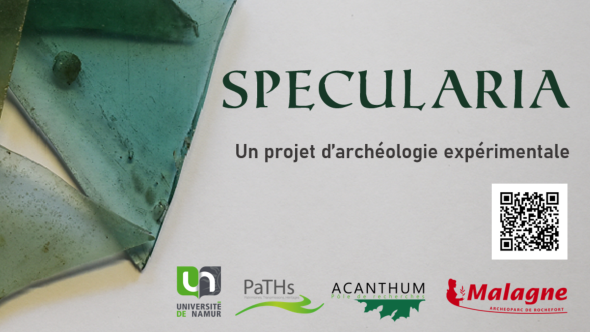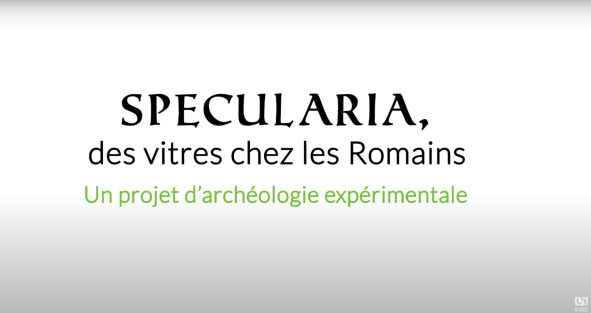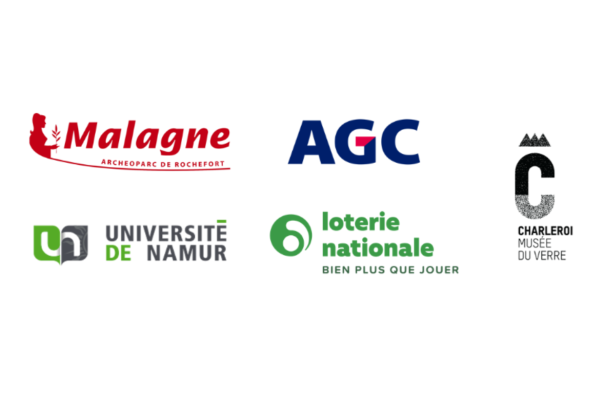Specularia" wins US film awards
The documentary produced as part of the experimental archaeology research project, "Specularia", wins an award at an American festival, organized by the University of Pittsburgh and the University of South Carolina!

The documentary produced as part of the experimental archaeology research project, "Specularia", wins an award at an American festival, organized by the University of Pittsburgh and the University of South Carolina!

Understanding how the Romans produced their glass: this was the aim of the Specularia research project, conducted by UNamur as part of the doctoral thesis of Géraldine Frère, an archaeology researcher at the Institut Patrimoines, Transmissions, Héritages (PaTHs).
Today, a new award has been bestowed on the Specularia project team: the documentary directed by Philippe Axell and co-produced by UNamur and the Malagne Archaeopark has been awarded an "Honorable Mention" at the Arkhaios Film Festival organized by the University of Pittsburgh and the University of South Carolina!
The film was competing in the Best Cultural Heritage Short Film category under the title "Specularia. Glass windowpanes in Roman times". It was thus one of three films to win in this category, which rewards documentary short films relating to cultural heritage.
This award underlines the quality of this exercise in scientific mediation through the prism of cinema, which is the result of a fruitful collaboration between director Philippe Axell, Malagne, the Rochefort archaeopark, and members of the University of Namur.
How was glass produced in Roman times? This question is at the heart of the Specularia research project led by Géraldine Frère, a researcher at the Institut Patrimoines, Transmissions, Héritages (PaTHs) and the Department of Archaeology and Art Sciences, in collaboration with Malagne, the Rochefort archaeopark. After a phase of in situ experimentation and analysis of the results, the project entered a new phase with the release of a documentary film. An opportunity to discover this scientific adventure in pictures! The first date was December 1, 2023, at Rochefort's P'tit Festival d'archéologie.
Specularia is a scientific innovation project combining research and craftsmanship. It is part of Géraldine Frère's doctoral thesis, entitled "From sand to window. Production and consumption of window glass between the 1st and 4th centuries in northern Gaul". Through this work, the researcher sought to understand the elements that conditioned the glass industry to live in Roman times, but also its installation in architecture at that time. Specifically, the project set out to determine by whom, for whom, how, where and when glass was produced. To achieve this, a multidisciplinary methodology was put in place: the Specularia experimental archaeology project is one of the many axes developed to unravel the mysteries of this industry.
After undergoing various preparatory stages, the research team had proceeded to an experimental phase within the Malagne archaeopark. To this end, two glassmakers' furnaces had been reconstituted on the site. In July 2023, assisted by glassmakers, the scientific team took part in the glassmaking process. A phase of rigorous scientific experimentation, which also took place under the gaze of numerous visitors.
Geraldine Frère's work continued with the analysis of the data collected, compared with archaeological material, to culminate in the most recent and in-depth scientific study to date on flat glass production in Roman times in our regions.
A project that has been followed, step by step, by director Philippe Axell in order to produce a documentary that raises awareness of this scientific adventure in Belgium and internationally, as well as placing it in the wider context of the history and archaeology of glass.

The Specularia project involved the purchase of unusual supplies for laboratory research: fireclay, tiles, river sand... To raise the necessary funds, UNamur launched a crowdfunding operation. A successful operation thanks to the mobilization of alumni, donors, friends of UNamur and several supporters: AGC Glass Europe, the Musée du Verre de la Ville de Charleroi as well as the Loterie Nationale and its players. UNamur thanks all the partners and supporters who came forward and helped make this project a reality!
"Specularia" project partners
